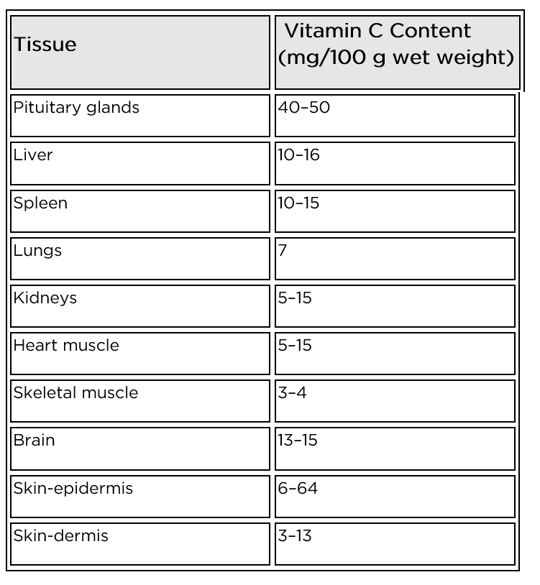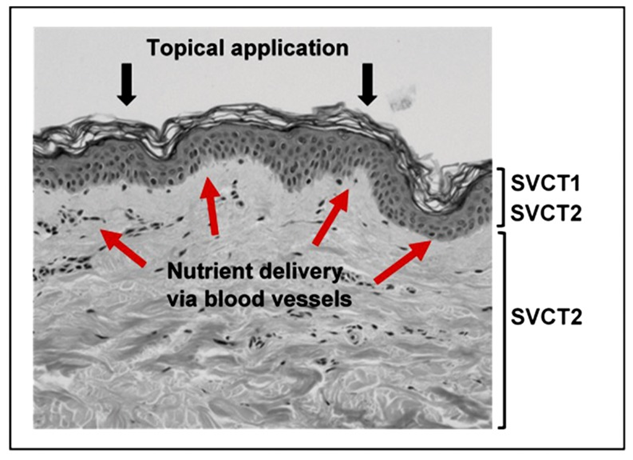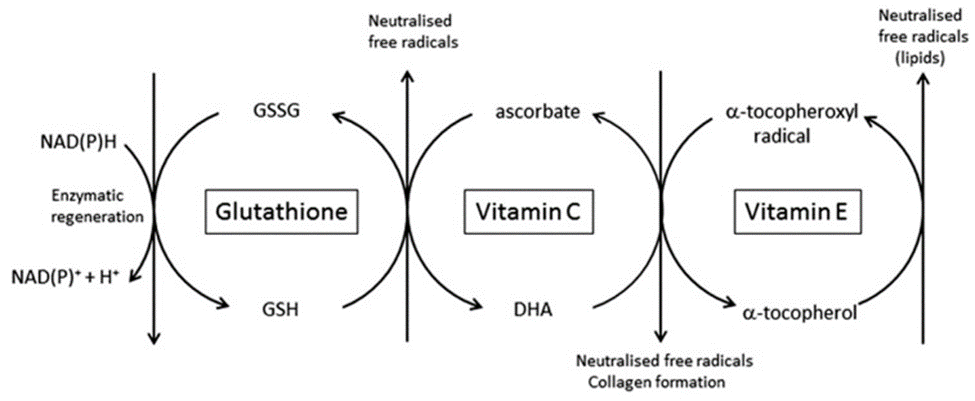Vitamin C is an essential micronutrient that must be consumed in the diet of humans, one of the few mammals that cannot synthesize it.
Vitamin C, an essential micronutrient that humans must obtain through their diet, is crucial for skin health, maintaining the skin's structural integrity, and acting as a protective barrier against environmental damage. Notably concentrated in the skin, especially in the dermis and epidermis, vitamin C is essential for collagen synthesis, ensuring skin firmness, and for protecting against oxidative stress from UV radiation and pollutants.
However, vitamin C levels in skin are influenced by its plasma availability, and although dietary supplements can enhance skin vitamin C content, this is primarily effective in individuals with below-optimal plasma levels. The skin's vitamin C content does not increase indefinitely with plasma saturation, indicating a threshold effect.

Aged or photodamaged skin often exhibits reduced vitamin C levels, and while the causal relationship remains unclear, exposure to oxidative stress is known to deplete vitamin C in the epidermis. For individuals with low plasma levels, topical application of vitamin C can be beneficial, particularly when optimized for absorption, such as in acidic conditions or when encapsulated in lipospheric forms. However, its efficacy is highly dependent on the individual's pre-existing skin nutrient status. The antioxidant's role in combating skin aging and aiding in wound healing, especially in vitamin C-deficient individuals, highlights its significance in skin resilience and repair, reinforcing the importance of maintaining adequate plasma levels for optimal skin health.

Several reports have indicated that vitamin C levels are lower in aged or photodamaged skin. Whether this association reflects cause or effect is unknown, but it has also been reported that excessive exposure to oxidant stress via pollutants or UV irradiation is associated with depleted vitamin C levels in the epidermal layer. Indeed, more vitamin C is found in the epidermal layer than in the dermis, with differences of 2–5-fold between the two layers being consistently reported. Levels of vitamin C in skin are similar to the levels of other water soluble antioxidants such as glutathione.
Blood levels of vitamin C are often lower in individuals with skin inflammation, including atopic dermatitis, suggesting increased utilization during inflammatory conditions. A significant study observed notably reduced vitamin C levels in patients with atopic dermatitis, recording plasma vitamin C concentrations between 0.11-0.55 mg/dL (6-31 umol/L), well below the optimal concentration of over 1.06 mg/dL (60 umol/L). Vitamin C deficiency not only affects the skin's antioxidant defenses but also impacts essential skin functions. Specifically, vitamin C is crucial for the synthesis of ceramides, vital lipids in the skin's protective layer, indicating the extensive role vitamin C plays in skin health beyond its antioxidant properties.

The central role for vitamin C and other antioxidants pertinent to the skin. The interdependence of vitamins E and C, and glutathione, in the scavenging of free radicals and regeneration of the reduced antioxidants, is shown. Vitamin E is in the lipid fraction of the cell, whereas vitamin C and glutathione are water-soluble and present in the cytosol.
Pullar, Juliet M et al. “The Roles of Vitamin C in Skin Health.” Nutrients vol. 9,8 866. 12 Aug. 2017, doi:10.3390/nu9080866 This article is an open access article distributed under the terms and conditions of the Creative Commons Attribution (CC BY) license (http://creativecommons.org/licenses/by/4.0/). https://www.ncbi.nlm.nih.gov/pmc/articles/pmid/28805671/
